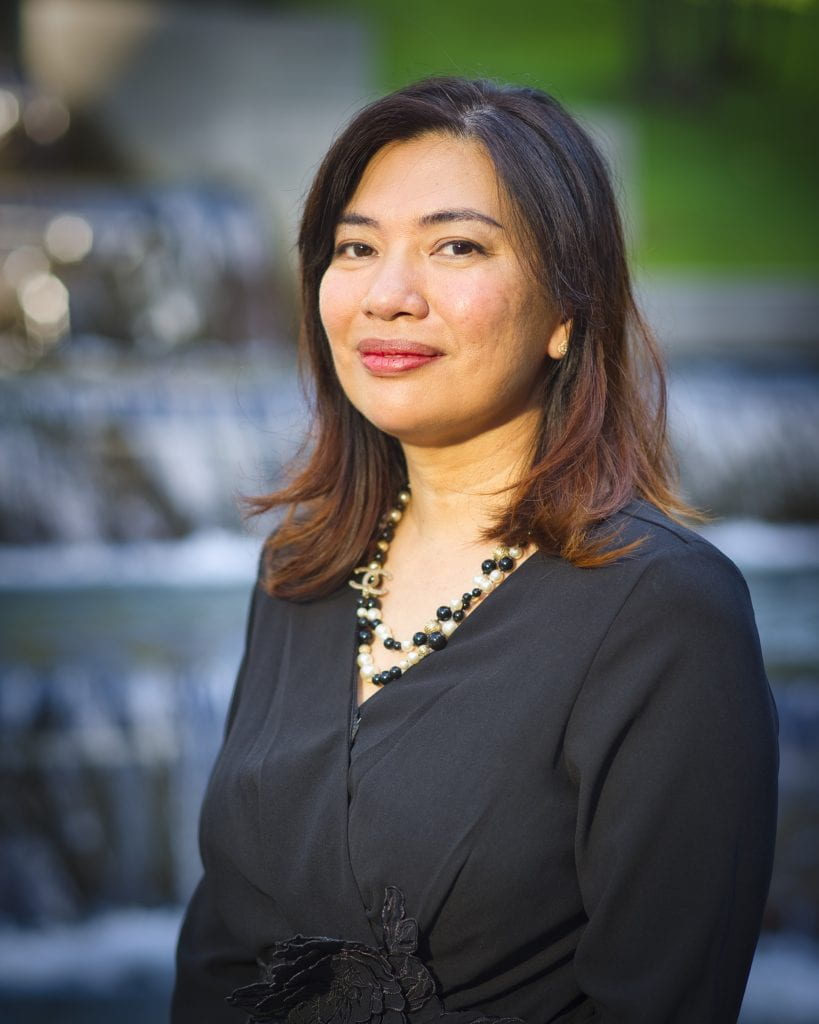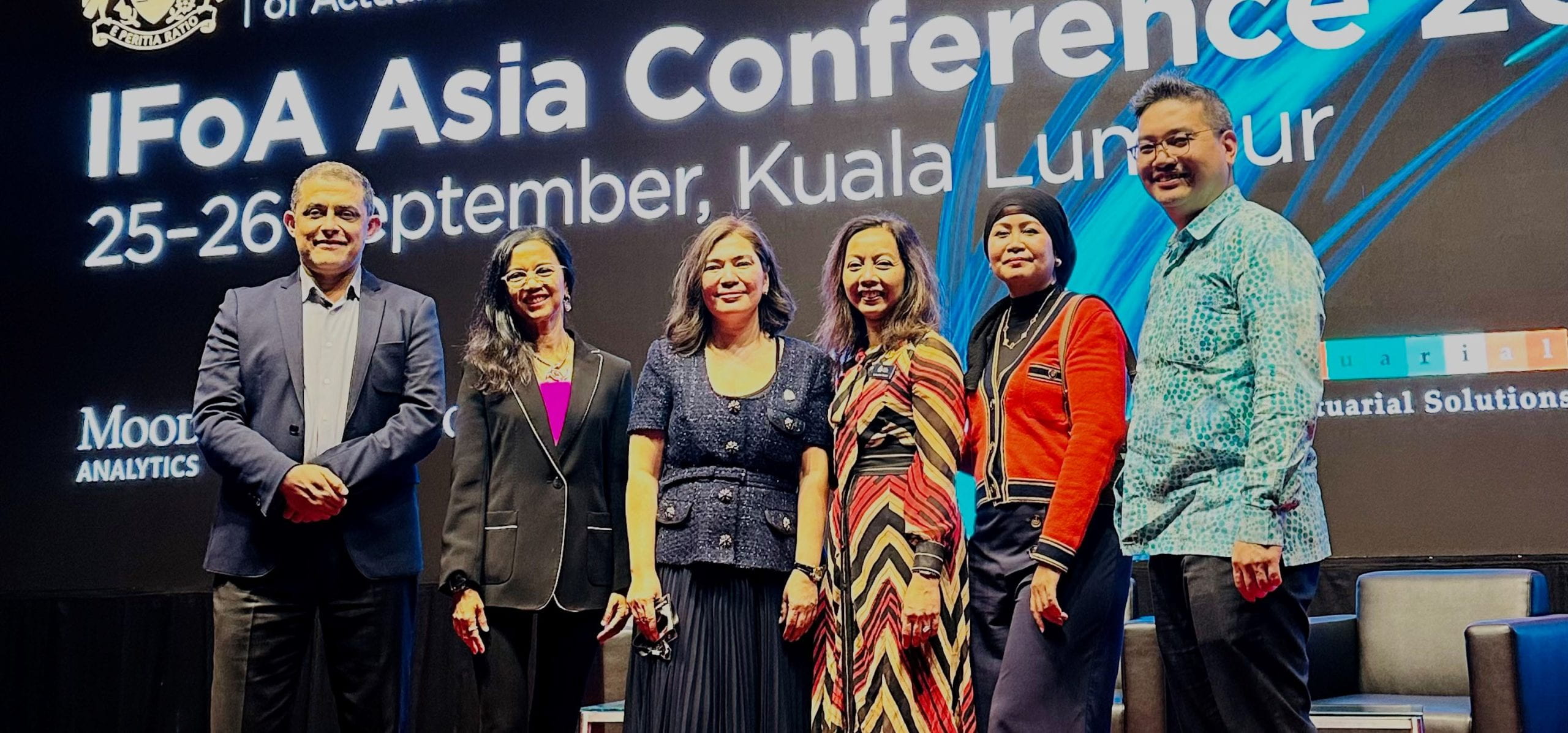 At Bayes Business School and City, University of London, we are celebrating #MuslimStories during November as part of Islamophobia Awareness Month. We will be sharing the inspirational and interesting journeys some of our Muslim alumni have been on, which we hope will spark meaningful and engaging conversations, through the transformative power of storytelling.
At Bayes Business School and City, University of London, we are celebrating #MuslimStories during November as part of Islamophobia Awareness Month. We will be sharing the inspirational and interesting journeys some of our Muslim alumni have been on, which we hope will spark meaningful and engaging conversations, through the transformative power of storytelling.
In this conversation with Aiza Benyamin (MSc Actuarial Science, 1995), senior partner at Actuarial Partners Consulting (APC) and President of the Actuarial Society of Malaysia, we spoke about her professional career, being a Muslim woman in the insurance industry and her time studying actuarial science.
Please tell us about your role as a senior partner at Actuarial Partners Consulting (APC)? What do you enjoy most about it?
I lead several teams providing actuarial consultancy services to a wide variety of clients from insurers and takaful operators, to provident funds and social security fund. The current focus of our insurance clients is on issues around International Financial Reporting Standards (IFRS) 17. For investments, mainly on asset liability management and strategic asset allocation.
In my work, I particularly enjoy the interactions and the knowledge sharing with our clients and mentoring our people at APC.
You are also the President of the Actuarial Society of Malaysia (ASM). What does this entail?
ASM is not an exam setting body, but we look after our members’ interest particularly in ensuring continuous learning opportunities. As part of members’ continuous professional development (CPD), our ASM Council has worked with professional actuarial bodies across the globe – the Institute and Faculty of Actuaries (IFoA) in the UK, Society of Actuaries (SOA) and Casualty Actuarial Society (CAS) in the US and Actuaries Institute in Australia. Of course, ASM also organises networking events, which typically centre around a professionalism agenda, but sometimes we meet up just for fun.
It would be great to learn more about takaful insurance and how it impacts your work.
Although it serves a good purpose, insurance, unfortunately, is not compliant with Islamic principles (Sharia) and hence for Muslims, insurance should only be used if there is no alternative. In Malaysia, and increasingly other countries, Muslims are fortunate to have a Shariah approved alternative option to insurance, called takaful. Essentially, the latter centres around risk sharing amongst participants, rather than risk transfer which is the basis of most conventional insurance arrangements. There are of course other differences but both serve a similar agenda of financial protection. Additionally, for takaful, investment choices are also ethical – avoiding industries such as tobacco, gambling, breweries or weapons manufacturing. This means takaful may also appeal to non-Muslims. In Malaysia, we see quite a good number of non-Muslims buying takaful. In fact, takaful is an untapped market, and in countries where there is a sufficiently large Muslim population, like Malaysia, takaful has grown at a much faster pace than conventional insurance.
I have worked with takaful operators and multinational corporations exploring takaful for 20+ years across many countries and have found the experience rewarding. The actuarial principles are similar but it helps if you understand Islamic principles, so you have a deeper understanding of the whys rather than just following the rules blindly.
Please could you tell us about your experience as a Muslim woman in the insurance industry?
A Muslim woman is like any other working member of society. The only limitation I have found is that I by choice, try not to participate in after-hours social networking activities which involve alcohol. This is perhaps where connections are typically formed and strengthened.
In hindsight, I might have had to work harder and be better prepared to ensure to be seen as smart, to overcome some initial prejudice that people might have…But I find that as we get to know people we are not familiar with, we always end up finding commonality in human experience and hence find respect for each other.
What inspired you to become an actuary?
From a very young age, I liked solving problems and enjoyed number crunching. In a queue, I would spend my time calculating how long it would take to get to the front of the queue and would sum up the total bill before it was presented. I was about 9.
As a school leaver in the late eighties, there was not much available information on actuaries. I recall it being seen as a prestigious profession that uses mathematics and statistics and was drawn to that.
Looking back, why did you choose Bayes to complete your MSc in Actuarial Science?
As a teenager in the late 80s, I was keen on the London School of Economics (LSE) given its prestige and visited a careers fair to find out more about it. Then, I was told by a representative of LSE that if I was serious about becoming an actuary, I should head to the City, University of London booth! I cannot thank that person enough now for that solid recommendation.
Do you have any standout memories from your time studying?
I recall the dedicated and knowledgeable staff and lecturers, who were very approachable, in particular Professor Steven Haberman and Dr Zaki Khorasanee.
I also loved the sessions with the visiting lecturers – real life actuaries that came to speak and share their experience. It was a novelty for young me.
What advice would you give to other Muslim graduates looking to follow in your footsteps?
We need more Muslims in this profession. As Muslims, our religion encourages us to seek beneficial knowledge. From my personal experience, I have found actuarial science a very specialist field, but the knowledge gained can be applied to solve many different complex problems. Actuaries essentially use data for good.
Lastly, takaful is very successful in Malaysia and I can see its potential in developed countries as its ethos can appeal to both Muslims and non-Muslims. I would encourage more Muslims to be part of this industry and work towards making shariah approved protection accessible to everyone.
Thank you to Aiza for sharing her story and inspiring Muslims and non-Muslims to become actuaries and learn more about takaful.
